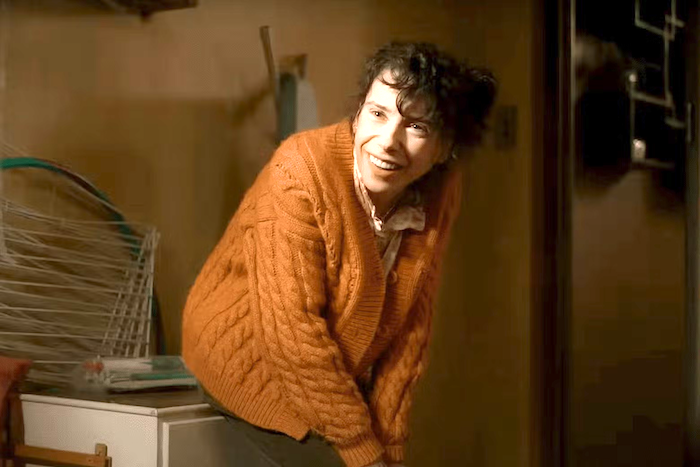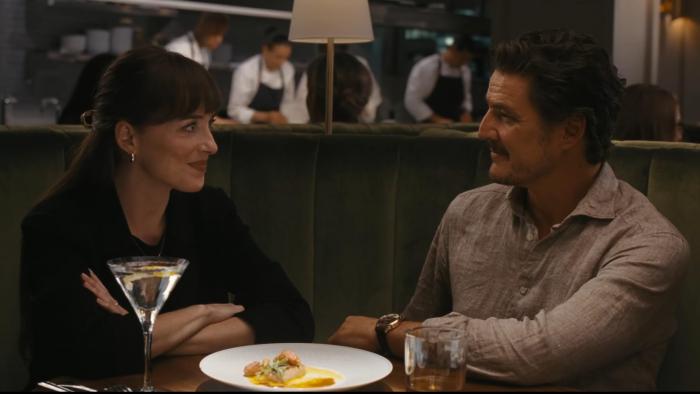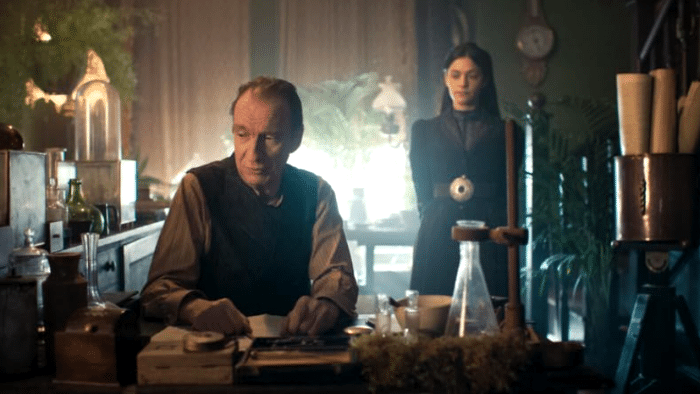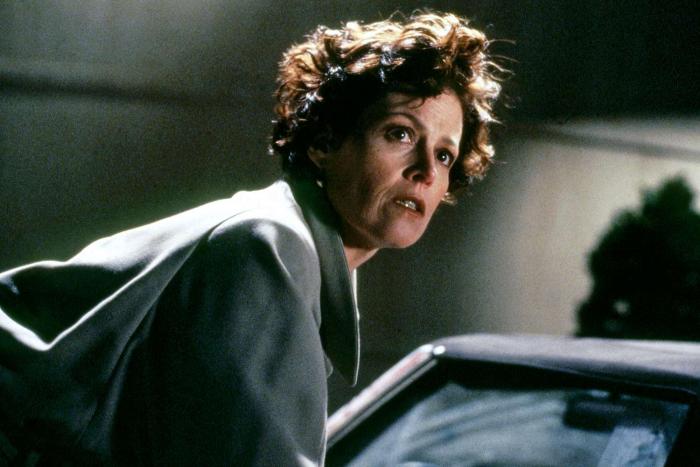
The Hidden Brilliance Behind the Year's Most Disturbing Casting Choice
By Dustin Rowles | Film | June 19, 2025

I finally got around to watching not just the most disturbing movie of the year (and maybe of the 2020s), but also one of the year’s best — A24’s Bring Her Back from Danny and Michael Philippou, the brilliant Australian twins who also brought us Talk to Me, the most unsettling horror movie of 2023. I love the Philippous because they’re like, “What if Ari Aster, but tighter, more accessible, and an hour shorter?”
For those who haven’t seen it, it’s about 17-year-old Andy (Billy Barratt) and his younger, blind sister Piper (Sora Wong), who discover their father’s naked, lifeless body in the shower. Traumatized, they’re placed with a foster mother, Laura — played, and this is important, by Sally Hawkins.
Andy and Piper are clearly in shock, and Laura provides what appears to be a warm, if quirky, home. She cooks for them. She comforts them. She’s a little intense, sure — encouraging Andy to say goodbye to his father with a kiss on the lips at the funeral, drinking a bit too freely with the kids, and keeping another foster child locked away in a side room. But in their vulnerable state, the siblings try to overlook the warning signs. Things get especially uncomfortable when Piper — who, again, is blind — asks Andy to describe what she can’t see. Like, say, the shirtless, scarred boy gripping a cat as it claws his chest while Laura hovers nearby like it’s all perfectly normal.
The first half of the movie plays a lot like Speak No Evil — all subtle psychological horror: “Welcome to my home, make yourselves comfortable, please ignore all the obvious red flags, and while you’re sleeping, I’m going to pour some of my urine on your crotch so that you think you wet the bed, which will make you more vulnerable to my gaslighting!”
I won’t spoil the second half except to say it escalates fast — with disturbing imagery that’s right up there with Hereditary. But there’s a reason Lindsay wrote that Sally Hawkins could be the year’s best villain. She absolutely is. As Lindsay puts it:
The human villain of this is Laura, a horrifying nightmare of a mad matriarch bolstered by the committed performance of Hawkins. She’s bizarre, unstable, focused, and meek all in appropriate measures to believably craft a woman who would be able to gain trust, love, and ire. In her most deranged moments, she commits to her villainous aura while still carrying herself like a slight woman whose hair and accessories are too large for her petite frame. In ways, she is evocative of Annie Wilkes or Minnie Castevet (of Misery and Rosemary’s Baby respectively) as they gaslight and torment their marks as part of a grander vision. But she’s more pathetic and desperate than a character like Minnie, as at her core, she is a grieving mother who has been broken to the point of embracing a willingness to bring torment for her own pleasure.
It’s a spot-on assessment, and yet it still doesn’t capture just how chilling Hawkins is in this. Because here’s what makes it really wild — I watched the movie with my teenager. Don’t worry: he’s almost 18 and a seasoned horror fan (Talk to Me and Hereditary are two of his favorites; he watched the latter alone, in the dark, during COVID isolation — against my very clear warnings).
He was absolutely gobsmacked. As the credits rolled, he just sat there, stunned, trying to make sense of what he’d just witnessed. Not because the movie wasn’t great — it is — but because of Sally Hawkins.
Now, I’ve seen Hawkins in everything, from her radiant breakout in Happy-Go-Lucky to The Shape of Water to years of odd, charming indie roles. She’s always had range. But my son? He’d only ever seen her as Mary Brown — the sweet, bohemian, free-spirited mom from the Paddington movies.
So imagine sitting down to a horror film and seeing Mary Brown — Paddington’s warm, loving mum — slowly transform into a gaslighting, deranged foster mother with serious Annie Wilkes energy. It’s like casting Fred Rogers in the Jack Nicholson role in The Shining. “Heeeeeeere’s Mary Brown!” For a certain age group, that is going to rewire your brain permanently. And that is precisely what makes her performance — and this film — so effective. Her very presence is a trust signal the movie then weaponizes.
It may also cement the Philippous as the best horror directors of their generation.


